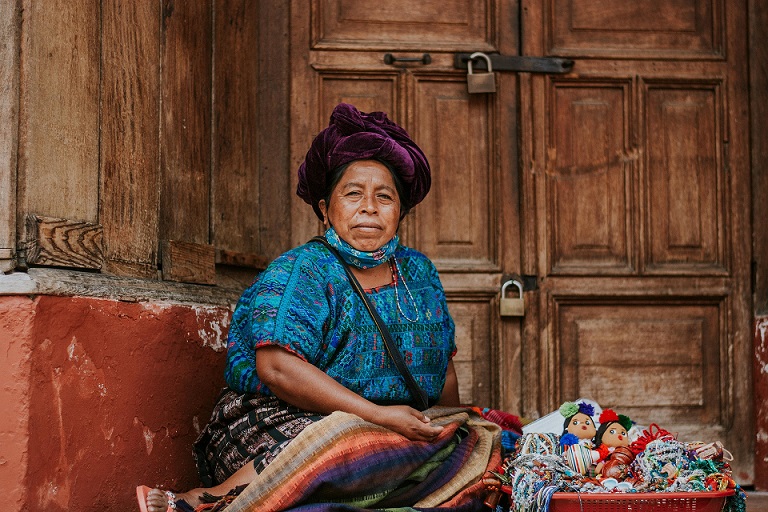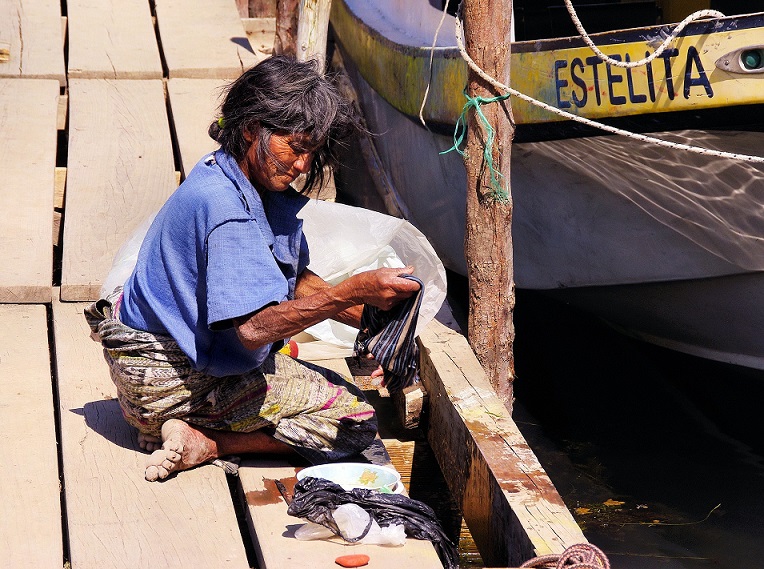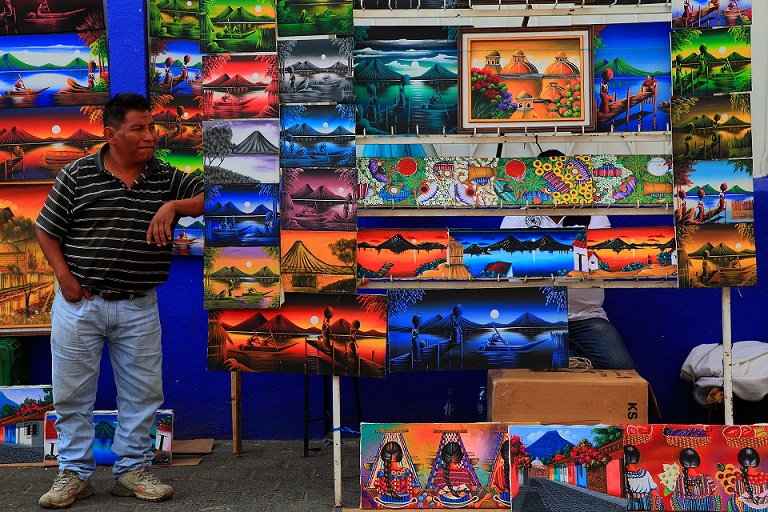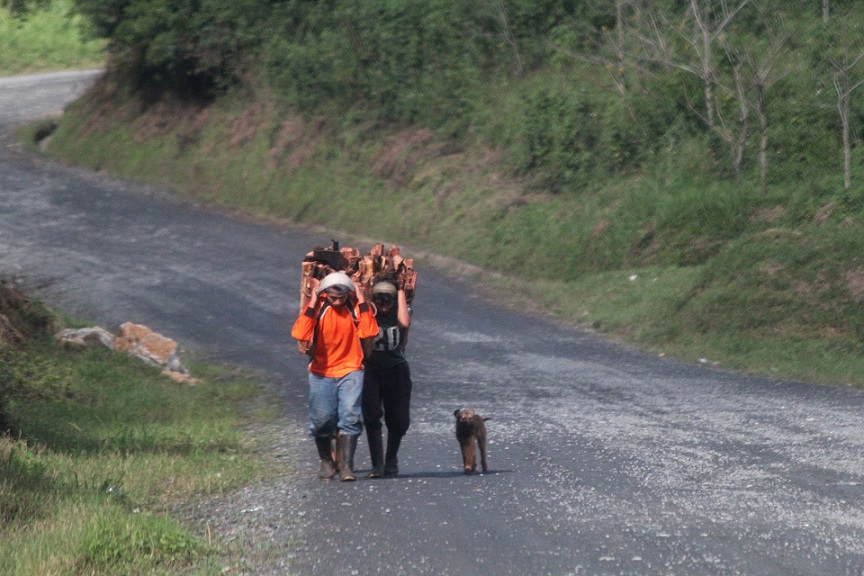If indigenous people are denied the quality of citizenship (by being denied the right to elect and be elected, to exercise public office), they are denied the quality of humanity. In Western logic, only humans can elect, be elected, and exercise public office. So, are indigenous people citizens? Are they human beings?
 Ollantay Itzamná
Ollantay Itzamná
In Guatemala, where more than 44% of the population is indigenous, general elections are open for June 2023. They will elect president, vice-president, 160 deputies, 20 representatives to Parlacen and 340 municipal mayors and councillors.
The native and peasant peoples of Guatemala, as in the rest of the countries of the continent, have never participated with their own political organisation or their own candidacies in any general election in the two hundred years of the Republic. In 2016, rural communities organised in resistance against the abuses of foreign corporations in their territories, articulated in the Codeca movement, decided to create their own political organisation to participate in elections, become a government and make “structural changes in the racist country”.
They achieved this in 2018, when they registered the political organisation Movement for the Liberation of Peoples, MLP, with the Supreme Electoral Tribunal (TSE). They called it a political instrument.
In 2019, without time or financial resources, they participated in the general elections and came in fourth place with their presidential candidate, Thelma Cabrera, a native Mayan Mam. But, astonishingly, the TSE only allowed them one seat in the Congress of the Republic.
 Since then, the communities and peoples in resistance have continued to organise, forming themselves under their horizon of the plurinational state and Buen Vivir, with the illusion of being for the first time in Guatemala’s history “full citizens” with the right to elect and be elected.
Since then, the communities and peoples in resistance have continued to organise, forming themselves under their horizon of the plurinational state and Buen Vivir, with the illusion of being for the first time in Guatemala’s history “full citizens” with the right to elect and be elected.
Then came the 2023 electoral process. The MLP, fulfilling all the legal requirements, held its National Assembly to ratify its community decisions and proclaimed Thelma Cabrera and Jordán Rodas (former Human Rights Ombudsman) as its presidential candidate. However, to national and international surprise, the TSE refused to register this candidacy, arguing: “invalidity of the termination” of Jordán Rodas. The constancia (or finiquito) is a filter document that the Comptroller of Accounts issues to public officials certifying that the bearer has no outstanding accounts with the law. And indeed, according to the web portal, Rodas’ finiquito exists, and is valid.
Faced with this situation, the MLP decided to place the TSE and the state itself between the “law and the streets”. They carried out all legal proceedings before the corresponding courts, but at the same time, the communities in resistance organised themselves to take to the streets to demand “recognition of the status of indigenous and peasant communities as cities”.
 The Guatemalan state, through its judicial apparatus, now finds itself at a historic crossroads: either it legally annuls the citizenship status it had theoretically granted to the country’s indigenous and peasants in 1953 (Decree n. 900, liberation from indigenous servitude), or it ratifies full citizenship for indigenous and peasants, allowing them to participate in the 2023 elections, with a good chance of being in government. In any case, the country’s de facto elites find themselves in a difficult situation.
The Guatemalan state, through its judicial apparatus, now finds itself at a historic crossroads: either it legally annuls the citizenship status it had theoretically granted to the country’s indigenous and peasants in 1953 (Decree n. 900, liberation from indigenous servitude), or it ratifies full citizenship for indigenous and peasants, allowing them to participate in the 2023 elections, with a good chance of being in government. In any case, the country’s de facto elites find themselves in a difficult situation.
MLP spokespersons have repeatedly said that they are not electioneers. “We don’t just want to win elections and be a government. We want to make the changes towards a plurinational state for Good Living through the process of a Popular and Plurinational Constituent Assembly”.
In these words, and in the collective actions they carry out, MLP advocates the recognition of full citizenship for indigenous people and peasants who, in practice, have never been recognised as citizens with the right to elect, be elected and hold public office.
In fact, in order to exist for the state, the indigenous man or woman was obliged to become Guatemalan: leave his or her language and speak Spanish, change his or her indigenous surname for a mestizo one, take on mystic Creole aesthetics and habits?
 In other words, the refusal of the Guatemalan state, through the TSE (the body called upon to promote universal citizenship and full democratisation of the country) and the action in the courts and on the streets by communities and indigenous peoples in Guatemala, is a much more transcendental issue than the “simple” fact of whether or not to allow indigenous people to participate in an electoral contest. The issue reveals the real situation of citizenship or not for the vast majority of the country’s population.
In other words, the refusal of the Guatemalan state, through the TSE (the body called upon to promote universal citizenship and full democratisation of the country) and the action in the courts and on the streets by communities and indigenous peoples in Guatemala, is a much more transcendental issue than the “simple” fact of whether or not to allow indigenous people to participate in an electoral contest. The issue reveals the real situation of citizenship or not for the vast majority of the country’s population.
(Translated by Cristina Popa – Email: gcpopa83@gmail.com) – Photos: Pixabay












.jpg)












